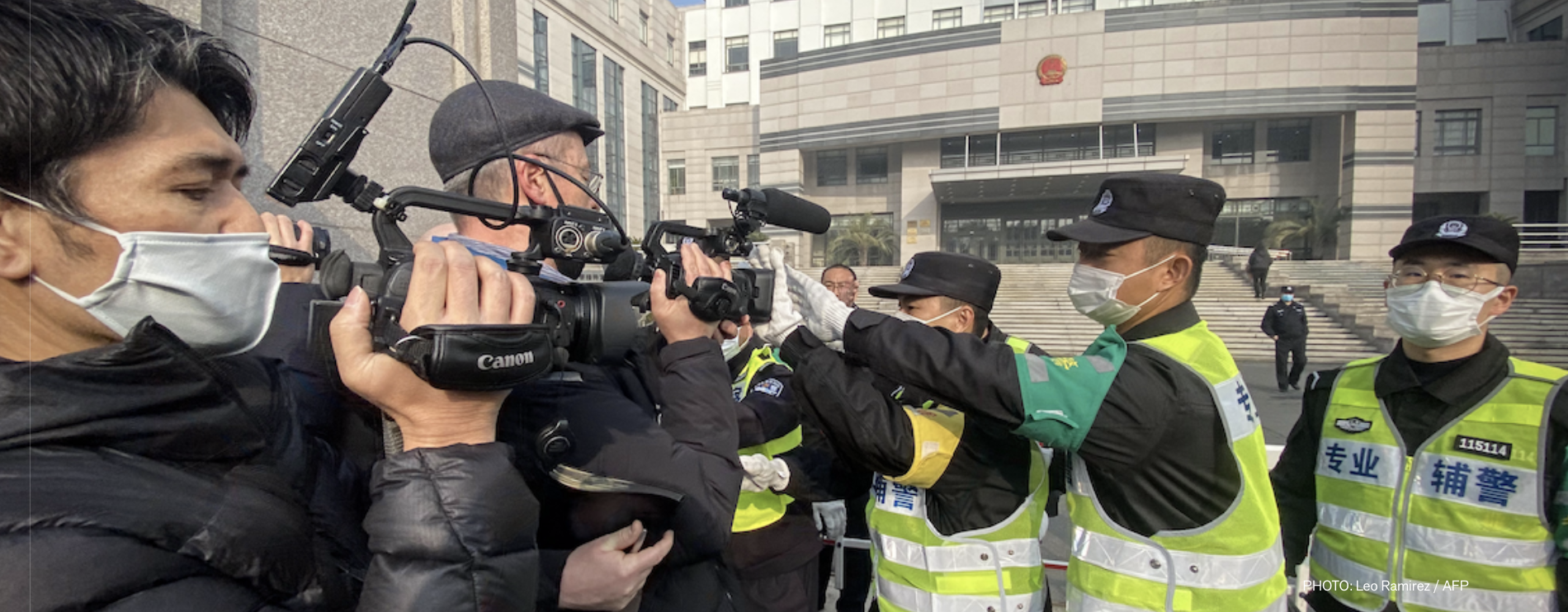RSF urges the Chinese regime to end the weaponization of visas as CBC withdraws from the country
Source: RSF
Following the closure of the Canadian Broadcasting Corporation’s Beijing (CBC) office this month, Reporters Without Borders (RSF) urges the Chinese regime to put an end to its policy of visa weaponisation against journalists and foreign correspondents.
“CBC being forced to withdraw from China is another great loss for the international audience when, at this time, it is so difficult to access independent information from within the country,” says RSF East Asia Bureau Head Cédric Alviani, who calls on democracies to “urge the regime to allow foreign media to operate in the country without pressure.”
On 2nd November 2022, Canada’s public broadcaster CBC (Canadian Broadcasting Corporation) announced that it would close its Beijing bureau after unsuccessfully waiting for over two years for the regime to approve a work visa for its correspondent Philippe Leblanc. It is not the first time the Chinese authorities’ policy of visa weaponisation has obstructed journalists from reporting: in recent years they have refused dozens of times to deliver or extend visas for journalists reporting on the country (see examples below).
In its 2022 report, the Foreign Correspondents’ Club of China (FCCC) once again denounced an aggravation of the regime’s intimidation and pressure on foreign media. Of 127 FCCC members who responded to the survey, only 4% confirmed that their media were granted a regular resident journalist visa in 2021, while many of them received residence permits of two-to-three months only. The report also pointed out the intensified harassment of foreign correspondents and their sources, which together with visa weaponisation makes it “increasingly hard for journalists remaining in China to operate”.
Over the past decade, Chinese leader Xi Jinping, whose mandate as the party’s General Secretary was extended last month, tightened the regime’s control of Chinese state media while initiating a violent clampdown on independent journalists and increasing intimidation and surveillance of foreign correspondents.
China ranks 175th out of 180 in the 2022 RSF World Press Freedom Index.
A decade of visa weaponisation against journalists
2022: CBC closed its Beijing bureau after waiting for over two years for the Chinese regime to approve a work visa for its correspondent.
2021: BBC correspondent John Sudworth fled the country, following pressure and threats from the authorities, while the regime banned the group from broadcasting in the country. In Hong Kong, The Economist's journalist Sue-Lin Wong was denied a visa without an explanation.
2020: At least 18 correspondents were forced to leave China, and several foreign journalists' visa requests were denied without explanation, including correspondents of New York Times, Wall Street Journal, Washington Post. In Hong Kong, New York Times journalist Chris Buckley and Hong Kong Free Press journalist
Aaron Mc Nicholas were denied work visas.2019: US journalist Bethany Allen-Ebrahimian, who wrote articles on China’s influence and applied to work as Agence France-Presse correspondent was denied a working visa, and Wall Street Journal reporter Chun Han Wong visa’s was not reissued.
2018: BuzzFeed News China Bureau Chief Megha Rajagopalan who wrote articles about Xinjiang, was denied a visa without explanation. Financial Times Asia journalist Victor Mallet was expelled from Hong Kong after serving as a moderator at a debate that featured a pro-independence activist.
2015: Beijing correspondent for French magazine L’Obs
Ursula Gauthier’s visa was not reissued after she refused to apologise for writing an article about Uighur minorities in Xinjiang.2013: Veteran journalist Paul Mooney, who reported on human rights in China, was denied a visa when he applied with Reuters.
Source: RSF

